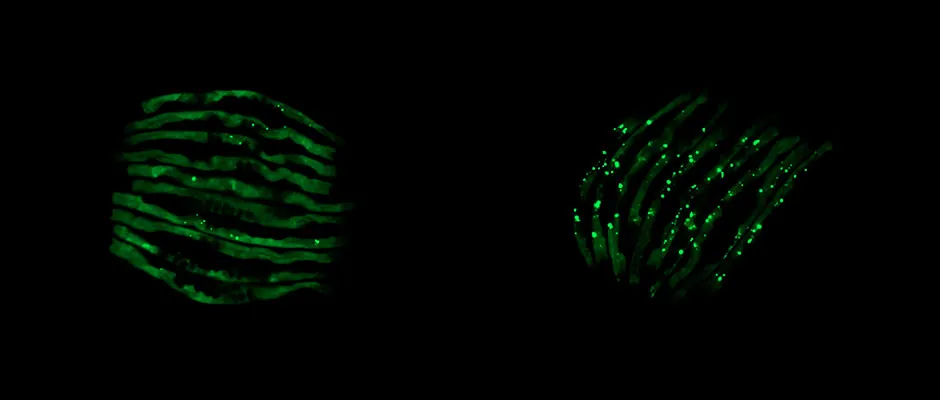Researchers have identified gut bacteria species that appear to play a role in the development of neurodegenerative diseases such as Alzheimer’s, Parkinson’s and motor neurone disease.
Previous research has shown a link between the conditions and changes in the gut microbiome, but among the thousands of species that live there, it wasn’t easy to identify which ones have an effect. Now, a team based at the University of Florida, USA, have not only identified the harmful bacteria, but have also shown that certain other bacteria species can produce compounds that counteract the effect.
"Looking at the microbiome is a relatively new approach to investigating what causes neurodegenerative diseases. In this study, we were able to show that specific species of bacteria play a role in the development of these conditions," said Dr Daniel Czyz, assistant professor at the University of Florida.
Read more about neurodegenerative illnesses:
- ‘Game-changing’ swab test could revolutionise Parkinson’s diagnoses
- New device could allow you to control a computer with your inner ear muscle
- Nanoparticles could deliver Alzheimer’s treatments to the brain
"We also showed that some other bacteria produce compounds that counteract these 'bad' bacteria. Recent studies have shown that patients with Parkinson's and Alzheimer's disease are deficient in these 'good' bacteria, so our findings may help explain that connection and open up an area of future study," he said.
Neurodegenerative disorders result from proteins building up in tissue in the body. These accumulations of proteins can interfere with cell functioning.
The team studied the link between gut bacteria and neurodegenerative disease in a worm called C. elegans. When they were infected with the harmful bacteria, proteins began to build up in their tissues.
"We have a way of marking the aggregates so they glow green under the microscope," said Czyz. "We saw that worms colonised by certain bacteria species were lit up with aggregates that were toxic to tissues, while those colonised by the control bacteria were not."

The worms also lost mobility. "A healthy worm moves around by rolling and thrashing. When you pick up a healthy worm, it will roll off the pick, a simple device that we use to handle these tiny animals,” said Alyssa Walker, lead author on the paper. “But worms with the bad bacteria couldn't do that because of the appearance of toxic protein aggregates."
The team hope to carry out further experiments in higher organisms, and then eventually in humans.
What is dementia?
Some 850,000 people are estimated to be living with dementia in the UK, and that’s expected to rise to two million by 2050.
Dementia describes the symptoms that someone experiences as a result of a brain disease. Such symptoms can include memory loss, mood and behavioural changes, and difficulties with thinking, problem-solving and language. More than 100 diseases can cause dementia, each with slightly different symptoms.
The most common cause of dementia is Alzheimer’s.
Discover more about dementia: